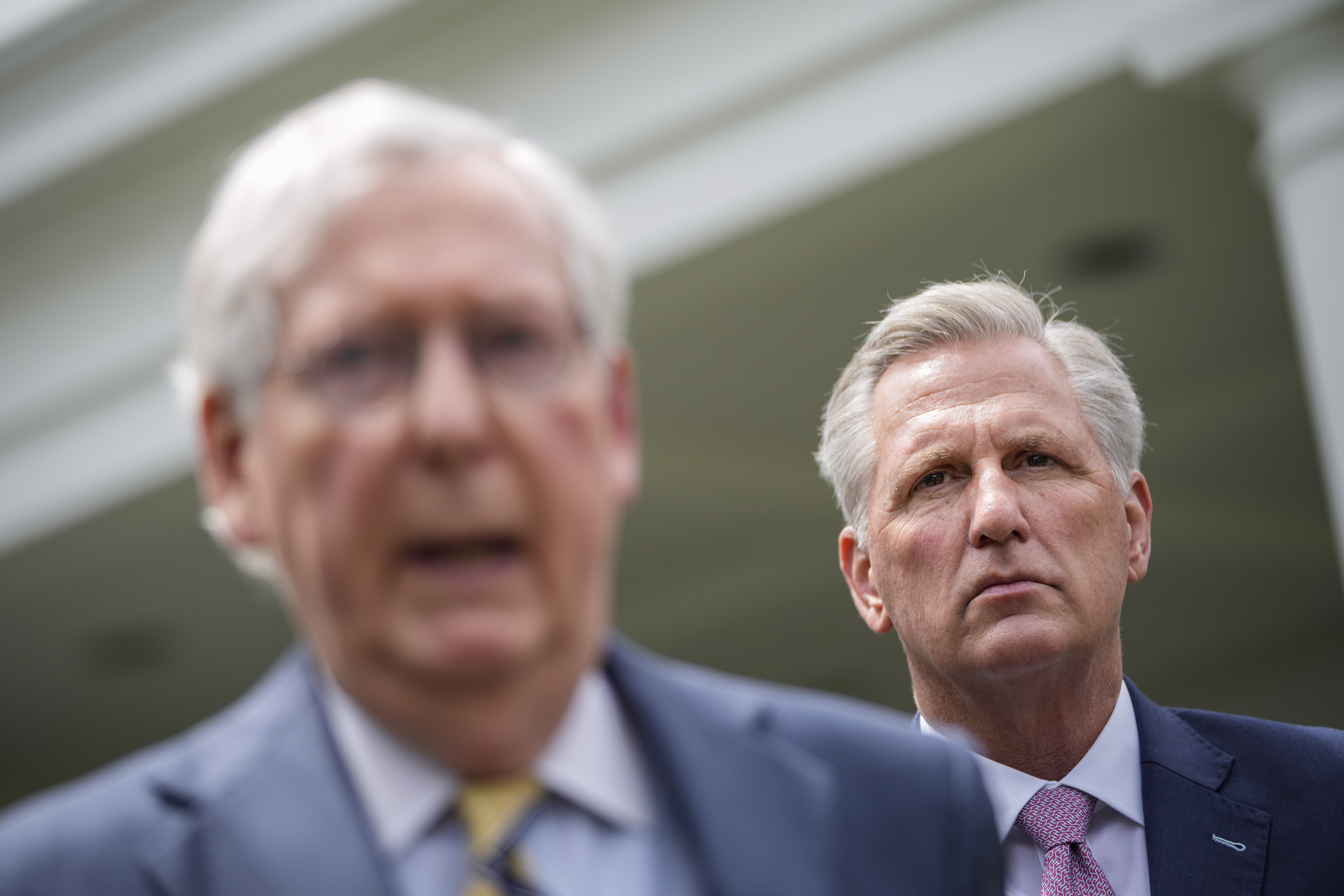This website uses cookies so that we can provide you with the best user experience possible. Cookie information is stored in your browser and performs functions such as recognising you when you return to our website and helping our team to understand which sections of the website you find most interesting and useful.
“It’s the future, not the past,” Thune said in a brief interview.
It’s the latest sign of an ongoing rift between House and Senate Republicans, particularly on false claims of 2020 election fraud and how to handle Trump’s continued hold on the party. The GOP has also split on opposite sides of the Capitol over last year’s debt limit deal and bipartisan infrastructure bill.
A Senate GOP leadership aide also downplayed the likelihood of a Republican response in the upper chamber. And a senior GOP senator, granted anonymity to discuss internal caucus strategy, added that it was “absolutely right” to presume there’s no appetite among Senate Republicans to get into a back-and-forth over Jan. 6.
The cross-chamber schism goes back to even before the attack, as Republican leadership weighed whether to discourage or support challenges to the Electoral College results in Congress.
Nearly 140 House Republicans — including Minority Leader Kevin McCarthy, Whip Steve Scalise (La.) and now-Conference Chair Elise Stefanik (N.Y.) — backed challenges to at least one state. By comparison, Senate GOP leaders leaned hard on their conference not to challenge state counts. In the end, only eight GOP senators voted to challenge state results.
And while McCarthy has stuck closely to Trump, who recently endorsed the Californian’s reelection bid, McConnell publicly fell out with Trump in December 2020. While the Kentuckian said he’ll support Trump if he’s the party’s 2024 nominee, he has also called him “practically and morally responsible” for the Jan. 6 attack.
Senate Republicans’ muted reaction to the hearings stands in stark contrast to many of their House counterparts, who technically work just hundreds of feet across the Capitol but sometimes inhabit different political realities.
McCarthy, Stefanik and other key members of the conference, including Ohio Rep. Jim Jordan, the top Republican on the Judiciary Committee and a member of the pro-Trump House Freedom Caucus, are expected to be at the center of the House response effort.
Jordan, in a recent interview, said that House Republicans should stay focused on issues like inflation and gas prices but that they still needed to respond to the committee’s public hearings, with the first scheduled for Thursday evening.
“We also point out how political this committee is. … For the first time in American history you’ve got a select committee where the minority leader was not able to put on that committee the individuals he or she selected. … And a committee that has time and time again lied about things. I know they lied about a text message I sent,” Jordan said.
House Republicans have started previewing their strategy over the weekend through friendly media outlets.
In a recent interview with Breitbart, Stefanik said that House Republicans would be coordinating their response with Trump and other Trump-world officials. McCarthy, meanwhile, laid out the case House Republicans will be making during a Fox News “Sunday Morning Futures” interview, and Jordan published an op-ed in conservative website The Federalist on Tuesday.
Stefanik, Jordan and Rep. Scott Perry (R-Pa.), the chair of the House Freedom Caucus, also held an invite-only press call on Tuesday to preview their argument for the select committee’s hearings. The Jan. 6 panel is expected to hold hearings throughout June, keeping their findings in the spotlight.
POLITICO was not invited to the press call and Stefanik’s office declined requests for the call-in information, noting Stefanik will answer questions at a GOP press conference scheduled for Wednesday. When asked whether only conservative media outlets were invited onto the call, Stefanik’s spokesperson did not answer.
Stefanik, during the call, vowed that House Republicans across the conference will be pushing back on the Jan. 6 committee hearings, including through rapid response and conducting a media blitz before, during and after the hearings.
Republicans also provided an update on their own investigation into Capitol security, but Rep. Jim Banks (R-Ind.) estimated that they were still weeks away from being able to put out a public report.
Across the building, even Trump’s allies in the Senate — including those who challenged the 2020 election results — don’t seem inclined to show the same level of pushback as House Republicans.
Sen. Lindsey Graham (R-S.C.), a close ally of Trump’s, said that the Jan. 6 hearings aren’t on his radar. Sen. Josh Hawley (R-Mo.), who helped lead the challenge to Pennsylvania’s 2020 election results, indicated that he wouldn’t be doing a formal response.
“I doubt it,” Hawley said in a brief interview. “I’ve been paying zero attention. … I imagine it will be this kind of theater from now until November.”
Sen. Rick Scott (R-Fla.), who also supported a challenge to Pennsylvania’s Electoral College slate, called the committee a “sham.” But he said that the National Republican Senatorial Committee, the Senate GOP’s fundraising arm that he chairs, wasn’t providing guidance to campaigns on how to handle the hearings. He said voters have higher priorities.
“Inflation, defunding the police, critical race theory — that’s what people care about,” Scott said. “It’s really inflation, it’s gas. The biggest issue right now, as you know, is gas prices, food prices, baby formula shortages.”
Olivia Beavers contributed to this report.



 Africana55 Radio
Africana55 Radio 

